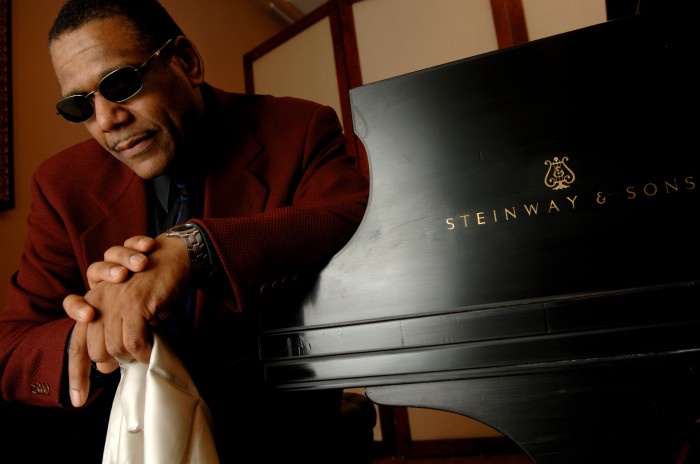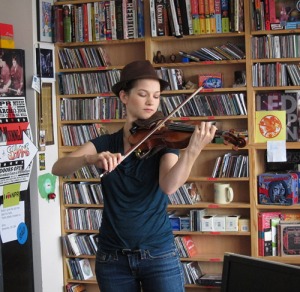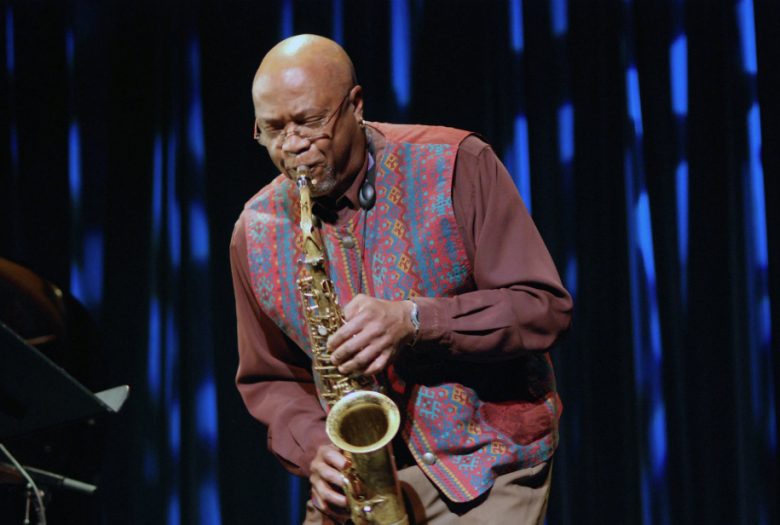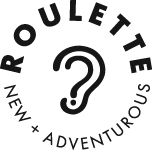SOUND PROJECTIONS
AN ONLINE QUARTERLY MUSIC MAGAZINE
EDITOR: KOFI NATAMBU
WINTER, 2021
VOLUME NINE NUMBER TWO
B.B. KING
Featuring the Musics and Aesthetic Visions of:
BRANDEE YOUNGER
(October 31-November 6)
CHRIS DAVE
(November 7-13)
MATANA ROBERTS
(November 14-20)
NATE SMITH
(November 21-27)
T.J. ANDERSON, JR.
(November 28--December 4)
KEYON HARROLD
(December 5-11)
NICOLE MITCHELL
(December 12-18)
OLLY WILSON
(December 19-25)
KENDRICK LAMAR
(December 26-January 1)
JONATHAN BAILEY HOLLAND
(January 2-8)
WENDELL LOGAN
(January 9-15)
DONAL FOX
(January 16-22)
https://musicians.allaboutjazz.com/donalfox
 Donal Fox
Donal Fox
Donal Fox is internationally acclaimed as composer, pianist, and improviser in both the jazz and classical fields.
His numerous awards include a 1997 Guggenheim Fellowship in music composition, a 1998 Fellowship from the Bogliasco Foundation (Italy), and 1999, 2001, and 2003 nominations for a CalArts/Alpert Award in the Arts.
Mr. Fox's exciting and innovative “Jazz Duet Series” has included concerts, recordings, and collaborations with Oliver Lake, John Stubblefield, Billy Pierce, David Murray, Elliott Sharp, Regina Carter, Andrew Cyrille, Stefon Harris, Al Foster, Gary Burton, John Patitucci, and poet Quincy Troupe to name a few. He has recorded as composer and pianist for New World Records, Evidence Records, Music & Arts, Passin' Thru Records, Yamaha's Original Artist Series, and Wergo Records.
Mr. Fox served as the first African American composer-in-residence with the St. Louis Symphony from 1991 to 1992. In the l993-94 season, Mr. Fox was a special guest artist at the Library of Congress in a program that was recorded by National Public Radio, and was a visiting artist at Harvard University where he received a Certificate of Recognition from the President of Harvard College for his contribution to the arts.
In the 1998-1999 season, he was a featured concert artist with the Richmond Symphony (VA) where he gave the world premiere performance of Anthony Kelley's piano concerto Africamerica. The concerto asks for Mr. Fox to compose and improvise four cadenzas and many solo passages, bridging both jazz and classical styles inherent in the concerto. In the 2003-2004 season, he was a featured concert artist with the American Composer Orchestra Improvise Festival! where he gave the New York premiere performance of T.J. Anderson's piano concerto Boogie Woogie Concertante with the MSM Jazz Philharmonic at LaGuardia Concert Hall. The concerto was written especially for Mr. Fox and asks for him to improvise all the solo passages and cadenzas in the eight movement work with spontaneous interactive dialogue with the orchestra.
In 2003 and 2004, Mr. Fox held artist-in-residence posts at the Tyrone Guthrie Center in Northern Ireland and the Oberfäzer Künstlerhaus in Schwandorf, Germany.
Mr. Fox was named Top Ten Jazz Act in 2004 in the company of Herbie Hancock, Sonny Rollins, and Ron Carter by jazz journalist Bill Beuttler of The Boston Globe.
https://www.bach-cantatas.com/Lib/Fox-Donal.htm
Donal Fox (Composer)
Born: July 17, 1952
Boston, Massachusetts, USA
Donal Fox is internationally acclaimed as composer, pianist, and improviser, whose career has daringly straddled two traditions - Western classical music and African-American jazz and blues.
Donal Fox was born into an artistic home where the music of J.S. Bach, Igor Stravinsky, Charlie Parker and Miles got equal hearing. His career is the story of that dialectic. He received early training in the Western classical piano repertoire at the New England Conservatory of Music, but began rebelling early. He began composing in mixed idioms of jazz and classical as a teenager, studied at Boston's famous "jazz college," Berklee and, at 17, received a scholarship to study at the Tanglewood Music Center, summer home to the Boston Symphony Orchestra. Fox continued to study composition and theory under an impressive series of tutors. One of them, Gunther Schuller, had early on proposed the blending of jazz and European classical idioms in a concept he called "Third Stream." Another early teacher was T. J. Anderson, who shared not only Fox's African-American background, but an equal interest in drawing techniques from varied traditions.
Fox's Refutation and Hypothesis I, A Treatise for Piano Solo (1981), established Donal Fox as an accomplished composer -- one who could draw not only on the standard repertoire of the Western classical tradition, from Bach and the German romantics to the great modernists Igor Stravinsky, Béla Bartók, Arnold Schoenberg, and Cage, but also on jazz's improvisational discipline and the shouts and field hollers of the blues. Fox's performances of that piece also clearly established him as a virtuoso pianist. He executed speedy, complexly written passages with crystal clear articulation and demonstrative physical force. He could play with jazz feeling but also had a Chopinesque sense of the instrument's tonal range and color that was uncommon for a jazz pianist in the post-bop era. What's more, the score's call for spontaneous shouts, body-slaps, even cursing, drew on Fox's unique emotional resources as a performer. It's safe to say that Fox's early performances of Refutation and Hypothesis I (later revised for piano and chamber orchestra) shook up some traditional concert hall audiences.
In 1990, Donal Fox began a series of collaborations that originated in Boston and were soon stunning audiences throughout the world. In August of 1990, Fox collaborated with the saxophonist/composer Oliver Lake, a founding member with David Murray of the World Saxophone Quartet. Their performance of original compositions and spontaneous improvisations at Cambridge's Regattabar Jazz Club was recorded and later released by Music and Arts as "Boston Duets." Other collaborations in the series followed. Fox performed with Murray, with the saxophonists Billy Pierce, John Stubblefield, and the poet Quincy Troupe. Several of these performances were recorded and broadcast on PBS television and public radio, including the Branford Marsalis-hosted "JazzSets."
Concurrently, Donal Fox served as the first African American composer-in-residence with the Saint Louis Symphony Orchestra for two seasons (1991-1993), where he worked with the St. Louis Chamber players and was commissioned to write a piano concerto. He participated in New York's "Bang on a Can" festival of new music, was invited to perform at the Library of Congress, and composed "Gone City" (New World, 1997) for Boston Ballet. Meanwhile, he created a stir in his work with the chamber groups Dinosaur Annex and Boston Musica Viva. Fox prepared traditionally trained chamber players for those performances with what he called "playing in the sandbox." Conducting from the piano, Fox prodded his colleagues to take the leap into improvisation based on his scores and cues. The performances impressed critics not only with their conceptual daring, but their cohesive integrity. In the l993-1994 season, Fox was a special guest artist at the Library of Congress in a program that was recorded by National Public Radio, and was a visiting artist at Harvard University where he received a Certificate of Recognition from the President of Harvard College for his contribution to the arts.
In the 1998-1999 season, Donal Fox was a featured concert artist with the Richmond Symphony (VA) where he gave the world premiere performance of Anthony Kelley's piano concerto Africamerica. The concerto asks for Fox to compose and improvise four cadenzas and many solo passages, bridging both jazz and classical styles inherent in the concerto. In the 2003-2004 season, he was a featured concert artist with the American Composer Orchestra Improvise Festival! where he gave the New York premiere performance of T.J. Anderson's piano concerto Boogie Woogie Concertante with the MSM Jazz Philharmonic at LaGuardia Concert Hall. The concerto was written especially for Fox and asks for him to improvise all the solo passages and cadenzas in the eight movement work with spontaneous interactive dialogue with the orchestra.
In 2003 and 2004, Donal Fox held artist-in-residence posts at the Tyrone Guthrie Center in Northern Ireland and the Oberfäzer Künstlerhaus in Schwandorf, Germany. Fox was named Top Ten Jazz Act in 2004 in the company of Herbie Hancock, Sonny Rollins, and Ron Carter by jazz journalist Bill Beuttler of The Boston Globe. In the 2005-2006 season, Fox premiered his Monk and Bach Project at Jazz at Lincoln Center, his orchestra piece, Hear De Lambs A-Cyrin, commissioned by the Albany Symphony Orchestra for The Spiritual Project, and the world premiere of his composition Peace Out, My Brother at Carnegie Recital Hall.. In 2006-2007 season, he gave the world premiere performance of T.J. Anderson's second Piano Concerto Fragments (A Bach and Monk Fantasy, for Improvised Piano and Orchestra), written expressively for Fox and the University of Iowa Symphony Orchestra, and The Bach Choir of Bethlehem - the oldest Bach Choir in USA - featured Fox in his Blues on Bach Project to celebrate their 100th anniversary.
Donal Fox's exciting and innovative “Jazz Duet Series” has included concerts, recordings, and collaborations with Oliver Lake, John Stubblefield, Billy Pierce, David Murray, Elliott Sharp, Regina Carter, Andrew Cyrille, Stefon Harris, Al Foster, Gary Burton, John Patitucci, and poet Quincy Troupe to name a few. He has recorded as composer and pianist for New World Records, Evidence Records, Music & Arts, Passin' Thru Records, Yamaha's Original Artist Series, and Wergo Records.
The tensions in Fox's career between two traditions has lead to a unique and original style. When Fox's pieces were released on the omnibus composers' album “Videmus” (New World, l992), the Pulitzer Prize winning critic Lloyd Schwartz wrote, "Fox is one of the most exciting musical personalities on the current scene. His four pieces are dazzlingly performed (or improvised) by the composer alone or with the marvelous young clarinetist Eric Thomas or the great alto-saxophonist Oliver Lake. The entire album achieves a vivid, even uncanny coherence - really an entire new and powerful work in itself."
Donal Fox’s numerous awards include a 1997 Guggenheim Fellowship in music composition, a 1998 Fellowship from the Bogliasco Foundation (Italy), and 1999, 2001, and 2003 nominations for a CalArts/Alpert Award in the Arts. In 2008, Mr. Fox was awarded the prestigious American Academy of Arts and Letters Academy Award in Music. The annual prize is awarded to composers of "exceptional accomplishment" and "outstanding artistic achievement.”
Source: SchirmerInc. Website (Author: Jon Garelick, Music Editor, The Boston Phoenix); Donal Fox pages on MyMusic; Wikipedia Website (April 2010)
Contributed by Aryeh Oron (November 2010)
Donal Fox: Short Biography | Piano Transcriptions: Works | Recordings
Links to other Sites
Donal Fox biography (Schirmer.com)
https://www.allaboutjazz.com/thinking-outside-the-musical-box-donal-fox-by-donal-fox.php
Thinking Outside The Musical Box
What is jazz? It is a state of mind, a spiritual quest for true
unfettered artistic expression. A human expression of individual
freedom, social freedom and love. Jazz is also about diversity.
Diversity is important, isn't it? We expect it in our social lives. We
demand respect and honoring in our society as artists and as human
beings, because we need to help maintain equality and social justice
among all the people of the world. In our music and in the jazz
community, we must strive to honor and respect our musical diversity as
well.
What is jazz? Improvisation is definitely an essential
element. Remove creative improvisation and we don't have jazz. Jazz has a
strong improvisational quality that has developed into a very
sophisticated art form. The skill that a musician needs to play their
instrument in order to successfully render and navigate the music's
rhythmical structures and melodic designs with the utmost of virtuosity
is nearly unparalleled in other music.
Swing is an another
important element of the music, but if it doesn't "swing" does that mean
it is not jazz? Sometimes focusing on swing and the periodic rhythms of
swing can interfere with the poetic expression and flow of the sound
and structure of the music. Some of the greatest jazz ballads have been
most soulful when not swung.
What about dynamics, musical
narrative, textual variety, harmonic colorings, rhythmical counterpoint,
etc? Jazz is an art form, and clearly distinct from today's popular
musical forms in its emotional and harmonic complexity, instrumental
virtuosity, structure, and architectural exploration. We know this. The
petty arguments and in-fighting among various factions among colleagues
and in the jazz music industry must stop. United we stand and divided we
fall! The proverbial pie is too small to be split up any more than it
already is. We must all learn to truly think "outside the box." We need
diversity. Free jazz, straight ahead jazz, Latin jazz, experimental
jazz, hip hop jazz, jazz electronica, soul-jazz, post-bop jazz, European
jazz, etc. the list goes on. As Duke Ellington said, there are only two types of music: good music and bad. Or as my friend and colleague Oliver Lake likes to say, "Put all my food on one plate! What kinda music you play? The good kind!"
We are all one musical family: Wynton Marsalis and Henry Threadgill, Jason Moran and Marian McPartland, Cecil Taylor and Brad Mehldau, Bob Belden and Butch Morris, Joe Lovano and John Zorn. Support and cherish our musical diversity and honor our differences and be joyous in the abundance of creative imagination that jazz brings to the cultural, artistic, musical and social landscape. We need it in our art, and we need it in our lives.
Swing is a relative thing. Remember most music critics didn't think John Coltrane was swinging when they first heard him. "Sheets of sound" they would say, or Elvin Jones' polyrhythms were incomprehensible to the straight-ahead cats. To them it wasn't swinging. What do they know? Most critics tend to be behind the eight ball anyway. We create. They follow. A follower cannot lead. Think outside the box. Express your musical thoughts with sincere conviction. Don't worry about critics and the status quo constantly imposing a type of conformity upon our creative impulses. All artists, young and old, search for the unknown. Strive to find the artistic truth that lies within you, and once determined, create without fear.
Donal Fox
Donal Fox (born July 17, 1952) is an American composer, pianist and improviser in the jazz and classical genres. He was the first African-American composer-in-residence with the St. Louis Symphony (1991–1992).[1][2] In 1993 he was a visiting artist at Harvard University.[3] From 2009–2011, he was Martin Luther King Jr. Visiting Scholar at the Massachusetts Institute of Technology.[4] Donal Fox is a Steinway Artist.[5]
Fox's works have been performed at Carnegie Hall. The concerto "Peace Out" for Improvised Piano and Orchestra was premiered at Zankel Hall in 2009, where Fox was the piano soloist.[6] "Peace Out" was commissioned and performed by the American Composers Orchestra. His piece, "Hear De Lambs A-Cryin," was performed at Stern Auditorium in 2011 by the Albany Symphony Orchestra.[7
Awards and honors
He received a 1997 Guggenheim Fellowship in music composition[8] and a 1998 Fellowship from the Bogliasco Foundation.[9] In 2008, Fox was awarded the American Academy of Arts and Letters Academy Award in Music.[10]
Relatives
Donal Fox is the eldest of six siblings. His brother Brian Fox is a computer programmer and the original author of GNU Bash shell. Donal is the paternal grandson of artist Daniel Fox, creator of the Monopoly Man.[11]
References
Assoc. of Game and Puzzle Collectors Quarterly www.AGPC.ORG summer 2013 Vol.15 No. 2. Page 18. Meet Dan Fox-- The Artist Who Created "Mr. Monopoly" by Philip E.Orbanes
External links
Wierzbicki, James (1992-01-15). "Classical Artists Show A Bent For Improvisation". St. Louis Post-Dispatch. St. Louis, MO. THE BIG surprise on Monday evening's Discovery concert at the Sheldon came at the very end, when composer/pianist Donal Fox led a half-dozen members of the St. Louis Symphony in a collective improvisation. Improvisation used to be a matter of course for musicians of classical bent. But in this age of specialization, off the cuff performance is left largely to jazzers, rockers and church organists, and orchestral musicians seldom do anything but read whatever notes are set before...
Wierzbicki, James (1992-10-21). "Musicians Savor Freedom's Discipline By Rendering Spirited Improvisation". St. Louis Post-Dispatch. St. Louis, MO. The complex and often hauntingly expressive vocal part that Antoine Wallace contributed to the third piece on Monday evening's Discovery concert contained but a single word. Freedom, he whispered after the instrumental music had boiled to its climax. And with those two syllables - extended, softened, shaped into a conclusive descending phrase - he summarized one of the most important steps the St. Louis Symphony has lately taken. Freedom in music, as composer Donal Fox told...
"Jazztalk, Improvisation, and Funny Hats in the Quad". thecrimson.com. Retrieved 2020-02-13.
"Donal Fox, Music and Theater Arts – Martin Luther King Jr. Scholars". mlkscholars.mit.edu. Retrieved 2019-03-14.
"Donal Fox - Steinway & Sons". steinway.com. Retrieved 2020-02-13.
"Navajo, Jesuit and Jazz for Orchestra". nytimes.com. Retrieved 2020-02-13.
"Spring for Music: Albany Symphony". npr.org. Retrieved 2020-02-13.
"John Simon Guggenheim Foundation | Donal Fox". gf.org. Retrieved 2019-03-14.
"Directory of Fellows | Bogliasco Foundation Donal Fox". bfny.org. Retrieved 2019-03-14.
"New Music News Wire | NewMusicBox". nmbx.newmusicusa.org. Retrieved 2019-03-14.
"Brilliant... One of the most successful classical/jazz unions in recent memory"
- All About Jazz
"[Fox's] innovative amalgam of Baroque and bebop (with a little bit of Babalu) is unique and utterly commanding"
- The Boston Globe
ABOUT
Donal Fox and his Inventions Trio tackle both jazz and baroque repertoire with visionary takes on Scarlatti, Bach, Monk, Coltrane, Coleman and more. Internationally acclaimed as a composer, pianist, and improviser, Fox expertly fuses jazz, Afro-Latin and classical idioms into intricate new works and electrifying performances. Praised by The Boston Globe as "unique and utterly commanding," Fox de- and reconstructs Bach, Piazzolla, Schumann, Monk, Schoenberg and more, adding propulsive grooves and using composed themes as springboards for glorious improvisational flights that blend baroque with bebop, twelve-tone techniques with twelve-bar blues.
A Steinway Artist, Fox has premiered his works at such prestigious venues as Tanglewood, Carnegie Hall and Jazz at Lincoln Center, and has served as the first African-American composer-in-residence with the St. Louis Symphony. Fox's fluency across genres has led to collaborations and recordings with the likes of Oliver Lake, David Murray, Quincy Troupe, Regina Carter, Terri Lyne Carrington, Maya Beiser and Hilary Hahn, along with the Richmond Symphony, American Composers Orchestra and the Albany Symphony Orchestra. Among his many accolades, Fox is a Guggenheim Fellow, and a recent recipient of the prestigious American Academy of Arts and Letters Academy Award in Music.
"Art Tatum on the right hand;
Johann Sebastian Bach on the left;
Donal Fox in the middle"
- Terrence McKnight, WQXR, New York
"His playing on the classics is superb, and on the pianissimo of the Dowland his fingers touch the keys with the delicacy of a butterfly alighting on a flower"
- The Boston Examiner
"A composer, pianist and improviser who deftly draws from jazz and classical contemporary traditions."
- The New York Times
CONTACT
REPRESENTATION | Bernstein Artists, Inc.
Sue Renée Bernstein
sue@bernsarts.com
282 Flatbush Avenue, Suite 101
Brooklyn, NY 11217, USA
Voice: +1 (718) 623-1214
Fax: +1 (718) 638-6110
GET IN TOUCH WITH Donal Fox
"Ingenious artistry... Fox improvises on several hundred years of musical tradition with aplomb and veracity."
- All About Jazz
Donal Fox and his Inventions Trio tackle both jazz and baroque repertoire with visionary takes on Scarlatti, Bach, Monk, Coltrane, Coleman and more. Internationally acclaimed as a composer, pianist, and improviser, Fox expertly fuses jazz, Afro-Latin and classical idioms into intricate new works and electrifying performances. Praised by The Boston Globe as "unique and utterly commanding," Fox de- and reconstructs Bach, Piazzolla, Schumann, Monk, Schoenberg and more, adding propulsive grooves and using composed themes as springboards for glorious improvisational flights that blend baroque with bebop, twelve-tone techniques with twelve-bar blues.
A Steinway Artist, Fox has premiered his works at such prestigious venues as Tanglewood, Carnegie Hall and Jazz at Lincoln Center, and has served as the first African-American composer-in-residence with the St. Louis Symphony. Fox's fluency across genres has led to collaborations and recordings with the likes of Oliver Lake, David Murray, Quincy Troupe, Regina Carter, Terri Lyne Carrington, Maya Beiser and Hilary Hahn, along with the Richmond Symphony, American Composers Orchestra and the Albany Symphony Orchestra. Among his many accolades, Fox is a Guggenheim Fellow, and a recent recipient of the prestigious American Academy of Arts and Letters Academy Award in Music.
Donal Fox: The Scarlatti Jazz Suite Project
| Play Donal Fox on Amazon Music Unlimited (ad) | |
Drummer Terri Lyne Carrington and bassist John Lockwood accentuate the pulse, joined by vibraphonist Warren Wolf, who lends rhythmic assent and an occasional contrapuntal response. One of the most brilliant aspects of this original Fox composition is the manner in which the bass and drums mutate rhythmic emphasis, without the usual walking/ride cymbal approach while maintaining a swing feel that takes flight into fast baroque passages played in unison by Fox and Wolf. Midway through, Fox changes the melodic theme and the rhythmic intensity approaches the feel of funk and even rock, without veering into hysteria.
Recorded live at Scullers Jazz Club in Boston, this outing is one of the most successful classical/jazz unions in recent memory. The Modern Jazz Quartet paved the way for Fox's approach, to be sure, yet his method is sui generis. On Horace Silver's classic ballad "Peace," Fox' subtle flourishes evoke the classical technique underpinning his prowess yet maintain the mood of the original. His interplay with Wolf, each echoing the swift runs of the other, morphs into a swinging section that incorporates a very brief classical theme before going back home to the melody.
"Variations On A Bach Fugue," featuring Lockwood's masterful bass, becomes a meditation on the blues replete with Don Pullen-esque elaborations and McCoy Tyner-like percussive comping. "Libertango" and "Oblivion," by Tango innovator Astor Piazzolla, are compositions perfectly suited for interpretation by Fox. Both take disparate musical forms and integrate them to create fine art.
John Coltrane's minor blues "Mr. Syms" is another highlight, as is Robert Schumann's "Davidsbundler," played with a tender, dreamy quality that leaves the audience breathless. Your breath will be taken away also, as the ingenious artistry of Donal Fox improvises on several hundred years of musical tradition with aplomb and veracity.
Track Listing
Aria; Scarlatti Jazz Suite; Peace; Variations on a Bach Fugue; Libertango; Mr. Syms; Davidsbundler; Variations on Piazzolla's Oblivion.
Personnel
Donal Fox: piano; Warren Wolf: vibraphone; John Lockwood: double-bass; Terri Lyne Carrington: drums.
Album information
Title: The Scarlatti Jazz Suite Project | Year Released: 2009 | Record Label: Leonellis Music
https://nmbx.newmusicusa.org/View-From-the-East-The-Talented-Donal-Fox/
View From the East: The Talented Donal Fox
I’d first heard Donal perhaps two years before that, in a friend’s living room, where a white grand piano sat, hardly ever played. But that night Donal was sitting at it, playing the “Moonlight” Sonata with rich, warm, and sensitive authority. I was just about transfixed. From then on, I’d see Donal sometimes, when he visited New York from where he lives in Boston, and our friends might happen to give a party. By then I’d learned a few things about him – that he’s widely respected in Boston, that he’s played jazz with the likes of Oliver Lake and David Murray, that he was composer-in-residence with the St. Louis Symphony in the early 1990s, that he’s recorded with David Murray and others on jazz labels, and that New World Records has released two CDs of his classical compositions. His music sits on the border between jazz and classical – but that, I realize (as I type the words), might be a clichéd and misleading way to describe it. It too quickly suggests “crossover,” a scary label that from long experience suggests (at least to me) that the music might not be very good classical or very good jazz. But Donal is an expert on both sides of this eroding fence, and the music he makes (like Edgar Meyer‘s fusion of classical and bluegrass) simply comes from being who he is. He doesn’t have to break any barriers or prove any points. He’s completely at home in everything he does.
He began the national anthem – or, more precisely, his composition called “Star-Spangled Banner Fractured” – with a whip crack of authority. Some pianists have a big sound. Some are exciting. But rarely do I hear one whose playing, from the very first note, forces me to listen as irresistibly as Donal’s does. I’m reminded (for a long-ago comparison) of Al Carmines, who used to write and play musicals at the Judson Church in the Village. One chord from him and the whole audience sat up. Donal, I think, could bring the entire Pentagon staff to attention, if he played “The Star-Spangled Banner” there.
When the tune got to “the rockets’ red glare,” it dissolved into rumbles. They didn’t come as a surprise; they’d been prepared by the previous phrases, which (after a straight beginning) already had been darkened by heavy pedaling. The obvious comparison here would be with Jimi Hendrix, but Donal’s version was less stark, less weighty with a message (Hendrix played his bruised and fractured anthem at the height of the Vietnam War), and, true to his classical training, more plainly coherent. The music of “the rockets’ red glare” would emerge in later passages, which apparently were improvised, like a soft echo of parts of itself, started but never finished. And at the end, the final cadence of the song emerged suddenly, as if from clouds of smoke. The performance might, of course, have had another meaning now, after the September 11 attacks. A year ago, it seemed partly playful. (More playful then Hendrix, too, whose version was deadly serious.) Though even now I don’t mind the playfulness. There’s also a lot of thought behind the piece, and maybe it catches all the ambiguities of a time when we all feel patriotic but still hope that, as far as possible, no more people will be hurt.
Next came something called Four Chords from TJ’s Intermezzi, which Donal – a most engaging speaker – introduced by explaining its material. This included, no surprise, four chords (he played them; they sounded like a wistful combination of Debussy, Scriabin, and, because of how they were voiced and arpeggiated, Bach). He also introduced us to a forceful major sixth at the high and low extremes of the keyboard, and to the notion of repeated notes. “Variations” was part of the concert’s title; here, Donal said, he’d show himself “working the variation form with select material.” I don’t think it matters that “variation form” suggests variations with a more formal theme. But what’s hard to say is why Donal’s comments sounded so little like dry analysis, or like an elementary music appreciation course, full of information nobody with cultivated ears would need. Instead, Donal, with a wise kind of innocence, seemed honestly fascinated with how his music is constructed. He shared his fascination with us; I doubt anyone in the Merkin audience thought he sounded too didactic.
At the start, as the music outlined the four chords with the Bach-like arpeggiations Donal had demonstrated, I noticed most of all his touch. His phrasing was more romantic, more nuanced than you’ll often hear in Bach (but then the chords are richer, too, than Bach’s, and more chromatic). He made the notes short, distinct from each other, but still blended in a glow of pedal (lighter, this time, than in the fractured anthem). Each note had its own weight; each had its own tale to tell, though always moving forward as part of the whole.
Then the piece got wild. Donal swept up and down the keyboard, apparently enjoying the sheer noise of dissonance, sounding like a man out for a happy romp, though he never played imprecisely (the notes were always clear) or lost sight of his material. The climax of the piece was great fun. The right hand moved upward and the left hand, thumping out a line in octaves, moved downward, both heading toward the extremes of the keyboard. (Was this an echo of the sixth at both extremes?) After that, the music thinned into soft commotion in a single register, medium high. Magically, the arpeggiated chords returned, though the final ending – not expected, necessarily, but inevitable, once we heard it – was that massive, widely separated sixth. In Broadway terms, that would be a “button,” a sharp conclusion designed to make the audience applaud. Here it was a sign both of force and wit.
We all did applaud, of course. “You’re a tough crowd!” Donal said, with wry appreciation. Then he launched into an explanation of the next piece, which bore an oddly academic title: Variations on Schoenberg’s Phantasy for Violin, Op. 47. But the premise (emerging from gentle wisecracks about Schoenberg‘s neglected skill as a bluesman) was much more lively: Take the violin part of the Phantasy, which Schoenberg wrote almost as an independent entity, before he wrote the piano part. Add a bass line to it. Make it jazz.
Which worked triumphantly. Surely we’ve all heard transformations of classical music into jazz, like the Swingle Singers‘ Bach or, a couple of generations ago, an amusing jazzy piano piece by Alec Templeton called “Bach Goes to Town.” Usually these come off a little bit like stunts, as if jazz was leading its new classical partner onto the dance floor, with a little smile on its face because it knows the shy classical kid doesn’t dance very well. (Which isn’t to say the Swingle performances aren’t good Bach, or that they don’t swing.) Donal’s Schoenberg, though, reminds me a little of one jazz take on a classical piece that’s really exhilarating, looked at from either side – Ron Carter‘s version of the first movement of the Bach Third Brandenburg Concerto, where a string ensemble plays the music straight while Carter improvises along with Bach on his bass. (To be utterly precise, the strings repeat a couple of bars, to give Carter a little more room to stretch out; you’d have to know the Bach by heart to notice.)
What Donal does, first, is to add an ostinato bass (or ostinato-like bass; I didn’t check to see if the two note pattern literally repeats). It sets up a jazzy rhythm, though, so suddenly the Schoenberg-derived notes above it start to hop. It also creates a strong tonal center. Here we run into a familiar phenomenon of extended 20th-century tonal harmony: Any note in the chromatic scale, played over a tonic pedal, will sound like it belongs somewhere in the key. Simply saying that, however, isn’t quite the same thing as making it work in practice, especially when most of the notes fall outside the center of the key (as defined, let’s say, by the tonic chord, or by a pentatonic scale on the tonic, or in other ways), and, even worse, when the notes themselves wouldn’t suggest the key.
So Donal’s arrangement of them – involving rhythm, repetitions, and other changes from Schoenberg’s original – is crucial to making them swing, which they delightfully do in his composition, and to cajole them into seeming to make some kind of non-12-tone harmonic sense. Here I think Donal is helped by the rich chromatic palette of post-bebop jazz, which goes in for chords just as dense as those in atonal music. In fact, years ago when I was studying at the Yale School of Music, people used to quote a line spoken, evidently in a rich Turkish accent, by Bulent Arel, a composer who’d taught at Yale before I got there. It was easy, Arel supposedly said, to write atonal music: “Take jazz chord. Make strange!” (My apologies if this story, remembered from second-hand accounts after many years, misrepresents Arel’s English.) Donal has, in a way, done the same thing in the opposite direction. “Take atonal chords. Make them jump.” It’s done (to my ear, at least) with rhythmic smoke and mirrors. Take a Schoenberg chord. Play it a couple of times in a jazz rhythm, with the kind of swing you’d get in jazz. Suddenly it is jazz. Magic!
The piece really swings, with an extra brainy kick of verve because we know how much brainy fun Donal is having. One game that doesn’t need any knowledge of Schoenberg involves the ostinato (or ostinato-like) bass. In places, Donal abandons it, sometimes charmingly. The first time is a lovely little musical twist, a sudden brief flowering of quarter-note triplets which sound for just an instant like they’re slowing the rhythm down. The end of the work is cute, too. The bass line, two notes a minor third apart, quietly develops a major third – which, in retrospect, turns out to have been lurking in the harmony all the time. Donal’s music, for reasons like this, is a great diversion for people who like the ways music is constructed, though his dash, wit, and virtuosity (plus his lyricism) leave plenty of room for everybody else.
I won’t talk in such detail about the rest of the concert. Vamping with T.T. was another jazz-like take on twelve-tone music. (“T.T.,” get it?) The row, which Donal demonstrated before he played the piece, naturally falls into sonorous, even juicy chords, with just a hint of melancholy. Donal played the simple series arrestingly, as well – in bare octaves, but with lots of flair, goosing the tempo as he went through all four basic forms of the row. The ending of the piece was striking, taking a path very different from the ending of Four Chords. The music evaporated into low, light, staccato notes, and then faded away into silence, while Donal’s hands still went on playing. Themes from Gone City ended the first half of the program, and was an impressive contrast. It was slow and lyrical. Arpeggiated chords (very carefully voiced, with hints of inner melodies) accompanied a melody high above them – except that the melody seemed to need the accompaniment to flow the way it wanted to. Or, to put it the opposite way, the melody notes might just as well have been part of the texture the accompaniment created. All the elements of the piece melded together much more organically than words like “melody” and “accompaniment” might suggest.
After intermission came three takes on existing classical works, including one by C.P.E. Bach, another by J.S. Bach (both unspecified), and finally the Prokofiev Toccata, Op. 11. This all gave Donal a chance to end the concert by taking his virtuosity for a ride. The C. P. E. Bach piece married baroque music to stride piano, with great driving energy; the J. S. Bach became a seething surge of rhythm. In his Prokofiev transformation, Donal departed from the original as early as the fifth bar. Prokofiev starts with four measures of pounding 16th-note Ds, alternating between the pianist’s hands. At bar 5, the right hand starts playing C and E for two measures, but Donal kept it going twice as long. But then the whole beginning is pianissimo in Prokofiev, and a lot louder as Donal asserts it, so of course he’s not playing the piece as it’s written. Instead, he uses parts of it as a point of departure for what I take to be improvisation. I suspect that his technique isn’t quite strong enough to play Prokofiev’s original at top speed, but his version brought the concert to an exuberant and thundering conclusion. Right then, I knew I wanted to write about the evening, but I didn’t have the chance; I’m thrilled to do it now. Everybody interested should check out Donal’s two New World CDs (which include some of the pieces I’ve described here). But there’s no substitute for seeing him live. Somebody should book him in New York.
(Full disclosure: I’d never claim to remember music in this much detail a year after I heard it. I worked from a videotape that Donal kindly sent me many months ago.)
QUINCY TROUPE
Pianist, composer, and improviser Donal Fox is offering a new collaboration with renowned poet Quincy Troupe. The two are reuniting for the first time since their work together on Donal Fox's 1997 album Gone City (New World Records), which The Green Mountain Jazz Messenger described as "Powerful vernacular poems of African-American experience. These are not only enhanced by Fox's keyboard and string embroidery, but in effect turned into songs... Fox is an astoundingly swift and alert collaborator, and his running pianistic commentaries reinforce Troupe's impassioned delivery of his works." The new program, Star Spangled Banner Fractured, is a vehicle to inspire, educate, and fuel dialogue in the critical fight for social justice in America.
Biographies:
More Donal Fox Programs:
"Powerful vernacular poems of African-American experience. These are not only enhanced by Fox's keyboard and string embroidery, but in effect turned into songs."
The Green Mountain Jazz Messenger
Audio: Donal Fox & Quincy Troupe - Following The North Star Boogaloo
Audio: Donal Fox & Quincy Troupe - River Town Packin' House Blues
https://chrismcgovernmusic.wordpress.com/2013/07/30/donal-fox-on-jamming-with-hilary-hahn-at-skaneateles/
Donal Fox ~ On Jamming with Hilary Hahn at Skaneateles
Pianist-composer-improviser Donal Fox is performing this year at the 34th annual Skaneateles Festival.
Known for some incredible work in both jazz and new music, Donal has also been very active as a collaborator and experimentalist in merging styles. Besides his solo appearance at the upcoming festival on Thursday, August 15th at 8 PM, he’ll be playing with none other than a longtime favorite of The Glass and a veteran of this festival, Hilary Hahn, on Saturday the 17th at 7:30 PM at a special evening devoted to a collaboration never before seen by the public, and something that promises to be a real treat for both fans of jazz and classical. Hilary will also be appearing on Friday the 16th playing a solo recital at 8 PM.
Donal had a few minutes to talk about the show.
CM: Who had the idea of putting you together with Hilary Hahn for a concert at Skaneateles?
Donal: The directors of Skaneateles brought me into it, they knew of my work from Tanglewood and several other projects–hats off to Elinor Freer and David Ying for exploring and expanding the programming. I’ve actually never heard of this festival before, and one of the first things that was asked was “Okay, we want you to come here and do something with your jazz trio”, and there was a number of string players that played with us in the past, and Elinor gave me the names. She said “If you’d like to do something collaborative, who would you like to play with?”, and Hilary happened to be on the list–At that time she’d just put out Silfra, and I’d followed her music for a while, particularly her Bach recordings, but I thought Silfra was marginally different–I know she had tip-toed into some pop stuff here and there, and she had the Charles Ives night at The Stone. But if you take Anne Sophie-Mutter or Joshua Bell, it’s hard to see that happening through them, right? There’s something genuine for Hilary trying, not just to reach audiences, but where she is in this maze of being an artist in the 21st century.
Of course I’ve played with Regina Carter,
Maya Beiser and done some things with them, but with Hilary, I thought
“Here’s a great opportunity”, which is partly the excitement of the
mentoring part of saying “Let’s branch our horizons”–this is the perfect
place for us to collaborate, and see where it could go, and open up
more doors. And then we had the Bach as the central player. Elinor was
excited about the Bach idea, but she asked if we could do it straight
and then do the jazz thing, but I didn’t want to be corny about this, so
I said we’ll do something so the audience could see how this develops.
So, that was how the idea for the show started, and we’re excited about
it.
It’s the unknown that’s a bit of a tightrope! You can’t completely succeed with it, you might not succeed, but that’s what the element of surprise is, which we need more of.
CM: I’ve seen Hilary Hahn play other music in person with people like Josh Ritter and Chris Thile, and she’s described experiences like these in some interviews as “flying by the seat of your pants”, which, I guess means it’s really exciting for her, and then she went on to do Silfra with Hauschka which was one of the best things I’ve heard in a long time, considering that was an improvised record. I wrote a review for the album, and I’m wondering if possibly she’d seen it and read the part where I said “She’s tried everything except jazz”.
Donal: Oh, I don’t know, but I’m not having her play jazz-–this is important to know, because, I don’t want to put Hilary in a position where I would tell her she’s to be like Stephane Grappelli or Regina Carter. That wouldn’t be fair to her, and that wouldn’t be fair to the music. It’s about having a place where she can completely be herself, and then have room to go into the unknown, but she doesn’t have to follow some preconceived style. By using the Bach, I’d give Hilary part of the Bach melody, given she does have some improvisational skills, and the trio’s holding the rhythm, so the rhythm itself is genuine Afro-Cuban expression, right? And she’s doing something with that, then we have an organic thing, so I’m really looking for an organic thing versus going “one, two, three, four, here we go, swing!”–Then it would not be organic.
CM: It sounds like what you’re saying is you probably want it to be something where she’s going to bring her own identity to it?
Donal: Exactly!
We’re in a paradigm in a way that music is connecting to people and where artists want to be connected. The walls between the categories are broken down, and those walls were put up artificially by record companies and media, and other forums to sell their products–they make the artists the commodities, and the bigger the commodity, the more they sell, but the corporate paradigm of record companies is basically trashed–Unless you’re Lady Gaga or Beyonce, they’re not interested in your music at all.
We have the digital age with iTunes and everything if you want a CD, you don’t have to go anyplace to buy it physically, except maybe the library. You go online and download it. What people download–It could be John Coltrane, it could be Donal Fox, it could be Hilary Hahn, because they’re digging it at that moment, and not actually putting a category to it. I’ve just been doing this a long time because that’s how my brain works, but now that I’m in this part, I’m able to make a living, the audiences are getting more diverse that way, and it’s about moving people with your music, and if you’re honest and true with it, and it connects, you’ve done your job. Preconceiving what it is by categories is becoming less and less important.Click here to buy tickets for the concert featuring the Donal Fox Inventions Trio with Hilary Hahn (You can also purchase the tickets for Donal and Hilary’s separate concerts as well on the respective dates)
https://artsongalliance.org/composers/donal-fox

Composers
Donal Fox is internationally acclaimed as composer, pianist, and improviser in both the jazz and classical fields. His numerous awards include a 1997 Guggenheim Fellowship in music composition, a 1998 Fellowship from the Bogliasco Foundation (Italy), and 1999, 2001, 2003 nominations for a CalArts/Alpert Award in the Arts. Mr. Fox served as the first African American composer-in-residence with the St. Louis Symphony from 1991 to 1993. In the l993-94 season, Mr. Fox was a special guest artist at the Library of Congress in a program that was recorded by National Public Radio, and was a visiting artist at Harvard University. In the 1998-1999 season, he was a featured concert artist with the Richmond Symphony (VA) where he gave the world premiere performance of Anthony Kelley's piano concerto Africamerica. The concerto asks for Mr. Fox to compose and improvise four cadenzas and many solo passages, bridging both jazz and classical styles inherent in the concerto. In the 2003-2004 season, he was a featured concert artist with the American Composer Orchestra Improvise Festival! where he gave the New York premiere performance of T.J. Anderson's piano concerto Boogie Woogie Concertante with the MSM Jazz Philharmonic at LaGuardia Concert Hall. The concerto was written especially for Mr. Fox and asks forhim to improvise all the solo passages and cadenzas in the eight movement work with spontaneous interactive dialogue with the orchestra. Mr. Fox's exciting and innovative "Jazz Duet Series" has included concerts, recordings, and collaborations with Oliver Lake, John Stubblefield, Billy Pierce, David Murray, Elliott Sharp, Regina Carter, Stefon Harris, Al Foster, Gary Burton, John Patitucci, and poet Quincy Troupe to name a few. He has recorded as composer and pianist for New World Records, Evidence Records, Music & Arts, Passin’ Thru Records, Yamaha’s Original Artist Series, and Wergo Records.Mr. Fox was named Top Ten Jazz Acts in 2004 in the company of Herbie Hancock, Sonny Rollins, and Ron Carter by jazz journalist Bill Beuttler of The Boston Globe. In 2003 and 2004, Mr. Fox held artist-in-residence posts at the Tyrone Guthrie Center in Northern Ireland and the Oberpfälzer Künstlerhaus in Schwandorf, Germany.In the 2005-2006 season, Mr. Fox will premiere his Monk and Bach Project at Jazz at Lincoln Center, his orchestra piece, “Hear De Lambs A-Cyrin,’” commissioned by the Albany Symphony Orchestra for The Spiritual Project, and give the world premiere performance of T.J. Anderson's second Piano Concerto Fragments, written for Mr. Fox and the University of Iowa Symphony Orchestra in celebration of the School of Music’s 100th anniversary.
https://roulette.org/event/oliver-lake-and-donal-fox-2/
The saxophonist and pianist perform collaborative pieces involving real time constructions using tone rows and chord sets. Donal Fox is a classically-trained composer with Lisztian fingers while Oliver lake is a saxophonist known for his work with The World Saxophone Quartet, Anthony Braxton, Cecil Taylor, and Jump Up. Fox is currently working on a piece commissioned by the St. Louis Symphony. Lake has written for the Arditti String Quartet. As a duo they have two upcoming releases on Koch Records and New World Records.
http://getclassical.blogspot.com/2014/09/donal-fox-playing-with-classical.html
Donal Fox – Playing With the Classical Imperative
Donal sees improvisation in the foreground of the creative process. “The more I read about the history, it was clear to me that improvising was part of what a great musician had to do. Mozart was improvising. Beethoven was improvising! He may have written the score down later on for his great patrons or the publisher, but his composition process is based on improvisation, and this is the real genesis of creativity,” he explains in our meeting on the eve of his recent Jazz at Lincoln Center duo performance with the virtuosic vibraphonist Warren Wolf. “Whether it is the great classics, or whether it’s jazz, they come from the same creative place. In most classical music, the melody and harmonic structure dominate, while the rhythm comes more to the forefront in jazz. Many classical composers, for example Stravinsky, have been influenced by jazz, the musical language that is the African-American cultural language of the melting pot fusion, and,” he continues, “that reminds me of something: a very young Mick Jagger said on a talk show interview, before he became Mr. Rolling Stones: ‘I am really trying to be James Brown – this is how it comes out.’” Fox says, endearingly: “In this sense, I am trying to improvise like Beethoven – what comes out is Fox."
Fox is no mutineer, and he certainly does not look to connect the disparate worlds of classical and jazz via crossover; he is also not a classical concert pianist who would perform the Beethoven Sonata cycle. “There are people that can do that much better than I ever could, and who devoted much more time to the rigorous training it takes,” he says. In fact, playing piano became a vehicle rather than the mission of his early musical career. Donal’s improvisation seems to indicate his simple refusal to deny classical music’s greatness on the grounds of being a jazz musician, and he takes it from there, venturing to sonic spaces above these two worlds. Whether he is teaching improvisation to members of the orchestra at the Symphony Hall, a process Fox compares to the fun and freedom of “playing in the sandbox,” or taking his original programs based on Brahms or Schubert to the jazz pub, Fox is equally likely to improvise over Thelonious Monk as he is to offset jazz with the contrapuntal structures of Johann Sebastian Bach. “In principle, baroque and jazz are so much alike, they both share the walking bass line, and I often compose with a part of the score written down and a part improvised, giving me room to engage in improvisational communication. I like to draw audiences’ interest with arrangements that respect the melody, but bring the swing,” he says, “this is not crossover; it’s opening up your thinking about music that is informed by history, but it also feels like it is part of our time. More important is the question: Does this music touch you? Music is so powerful and there should not be any stigma attached to playing what moves you; it has to come from a true place in your heart.”
Studying both at Boston’s Berklee College of Music, renowned for its strong jazz faculty, and New England Conservatory of Music, Donal frequently got carried away in different directions improvising while practicing classical repertoire, despite his teachers’ insistence that he focus on the classical composition at hand. Other forces were stronger for Fox: “My focus on creating over recreating became stronger and stronger,” he says. He is certainly not alone in this; other pianists, like Gabriela Montero, who Fox greatly admires, have been improvising from the beginning of their studies while simultaneously discovering the piano’s classical repertoire. And yet, the stigma of the written score as the only suitable homage to the great composers of the past, as opposed to the self-created tune, has sustained overwhelmingly. In Montero’s case, as celebrated as she is for her spontaneous improvisational interpretations of the classical masters in the concert hall, it took personal encouragement from the great pianist Martha Argerich to allow her to dare explore her special talent.
Fox grew up in a rare, artistic home in which Bach Cantatas occupied the family playlist right next to Miles Davis, which was next to Igor Stravinsky. But music’s limitations and stigmas were quite clear to him early on, when most of his friends did not follow him on his classical concert hall explorations. “When I performed at a jazz bar it was cool, when it came to a concert hall performance, no one came.” Fox did not want to miss out on social solidarity entirely, defined by a mutual musical identity, but he certainly did not care to toss out his great respect for the classical tradition to stay popular with his friends either. In fact, for a long time, Fox hid his improvisational talents, afraid of being frowned upon by either side of the musical fence. “The contemporary music scene is just as stiff in its ways,” he confesses, “and every venue is worried for their audiences. It gets complicated, sometimes” says Fox, who has been able to reach both concert hall and jazz club audiences with his individual style and adaptable pianistic technique. His skills brought him from the Rockport Jazz Festival to Tanglewood and Carnegie Hall, where, as composer/performer and improviser, Fox received standing ovations and a gleaming review by Times critic Anthony Tommasini, for the world premiere of his concerto “Peace Out” for Improvised Piano and Orchestra in 2009.
Photo - Frank Stewart
Donal’s international career took off, after serving as the first African American composer-in-residence of the Saint Louis Symphony Orchestra. He participated in a vast array of collaborations and recordings with artists ranging from new music’s Bang on a Can contemporary players, to jazz celebrities at Lincoln Center. “Still, black people don’t usually come to the concert hall,” he comments, “and at the same time, jazz is getting much more institutionalized now that it is an established discipline of its own in schools. What happened to learning on the road, from the great masters? Today’s performers have incredible facility, amassed a large amount of repertoire and a great technique, but rarely carry their own voice. It is rather difficult to get people to listen to either jazz or classical these days; there is the need to produce new things, for people to go out there and hear live concerts.”
If audiences are particularly defined by their music tastes, perhaps it’s time to overcome borders within music presentation by letting audiences mingle in more intimate venues with more social context. The divide may not lie as much with Bach or Monk, but rather with the strong affinity for one’s own identity. Perhaps more common traits can be discovered over a glass of wine and a good show than one might expect; after all, good music opens horizons, carrying the bass line beyond one’s own small world.
By Ilona Oltuski – music journalist and founder of GetClassical – music salon events and new classical music concert series at Zinc Bar.
http://www.bernsarts.com/donal-fox-solo-piano
Donal Fox Solo Piano: In the Pursuit of Truth and Beauty
Donal Fox: In the Pursuit of Truth and Beauty is music and art to inspire, reflect, motivate and empower, as we slowly bend the arc to equality and social justice for all.
Writes Fred Brouchard for The Boston Musical Intelligencer: "Another medley touched on the political climate that Fox joshed 'could get me deported.' His resounding Star-Spangled Banner, Fractured reimagines the Key anthem, drawing eloquently and explosively from Charles Ives’ playbook (swags of sustained arpeggios from Concord Sonata) with haunted echoes of Chopin’s Marche Funèbre. It evolved into The People United Will Not Be Defeated, a Chilean revolutionary song by Sergio Ortega bestowed with academic credentials via Frederick Rzewski’s roaring hour of variations. Fox crafted his own variations, with stylistic touches reminiscent of Oscar Peterson and Kenny Barron, that waxed majestic, pleading, conciliatory."
Internationally acclaimed as a composer, pianist, and improviser, Donal Fox expertly fuses jazz, Afro-Latin and classical idioms into intricate new works and electrifying performances. Praised by The Boston Globe as "unique and utterly commanding," Fox de- and reconstructs Bach, Piazzolla, Schumann, Monk, Schoenberg and more, adding propulsive grooves and using composed themes as springboards for glorious improvisational flights that blend baroque with bebop, twelve-tone techniques with twelve-bar blues.
A Steinway Artist, Fox has premiered his works at such prestigious venues as Tanglewood, Carnegie Hall and Jazz at Lincoln Center, and has served as the first African-American composer-in-residence with the St. Louis Symphony. Other recent appearances have included the National Gallery of Art in DC, the Mondavi Center at UC Davis, Cal Performances at UC Berkeley, and the Rockport Jazz Festival.
Fox's fluency across genres has led to collaborations and recordings with the likes of David Murray, Oliver Lake, Quincy Troupe, Regina Carter, Terri Lyne Carrington, Maya Beiser and Hilary Hahn, along with the Richmond Symphony, American Composers Orchestra, and the Albany Symphony Orchestra.
Among his many accolades, Fox is a Guggenheim Fellow, and a recipient of the prestigious American Academy of Arts and Letters Academy Award in Music.
"A composer, pianist and improviser who deftly draws from jazz and classical contemporary traditions."
The New York Times
"[Fox's] innovative amalgam of Baroque and bebop (with a little bit of Babalu) is unique and utterly commanding."
The Boston Globe
"His playing on the classics is superb, and on the pianissimo of the Dowland his fingers touch the keys with the delicacy of a butterfly alighting on a flower."
The Boston Examiner
"Art Tatum on the right hand; Johann Sebastian Bach on the left; Donal Fox in the middle."
Terrance McKnight, WQXR
Audio: Donal Fox Live on WQXR Emancipation 150
Audio: Donal Fox Live on Radio Open Source with Christopher Lydon
Biographies:
More Donal Fox Programs:
"Ingenious artistry... Fox improvises on several hundred years of musical tradition with aplomb and veracity."
All About Jazz
Selected Press:
Feature Article - Get Classical
Concert Review - Boston Jazz Blog
Concert Review - The Boston Globe
Concert Review - The Boston Examiner
Concert Review - Jazz Improv Magazine
Concert Preview - The Hartford Courant
Album Review - All About Jazz
Album Review - All Music
Feature Article - New Music Box
Outreach Information:
Donal Fox's jazz plays upon many traditions
CAMBRIDGE -- Composer/pianist Donal Fox has forged a unique amalgam of jazz, Latin American, and classical music. Past projects have focused on Johann Sebastian Bach, but the centerpiece of Saturday night's Regattabar performance was a jazz suite incorporating the music of Domenico Scarlatti .
Fox was accompanied by vibraphonist Stefon Harris , bassist John Lockwood , and drummer Terri Lyne Carrington. This instrumentation inevitably brings the Modern Jazz Quartet to mind, but Fox's band married that group's cool poise with the power and momentum of the John Coltrane Quartet.
The opening number was based on an Astor Piazzolla tango. Rather than presenting the usual string of solos, piano and vibraphone engaged in a fluid, improvisatory dialogue. Lockwood and Carrington's bass and drums provided active but essentially supportive background for the friendly jousting of Fox and Harris.
The second number was Fox's ``Inventions in Blue," which drew from Bach's Two-Part Invention No. 4 in D Minor. It began as a rapid, African-sounding vamp, spelled by lyrical piano chords that floated over the pulsating rhythm. Harris's swinging, bluesy solo was bouyed by Lockwood's walking bass and Carrington's urgent ride cymbal.
Then Bach's invention was introduced, played faithfully at first by piano and vibes. But Fox and Harris began stretching out as the African rhythm returned, revealing that the initial vamp had indeed been based upon a cadence of Bach's. With the full band's headlong velocity re established, Fox and Harris played intense percussive patterns that interlocked in an exciting rhythmic counterpoint.
Next came Bach's Fugue No. 23 in B Major, set to a Latin beat and building to a two-fisted Fox solo. A sensitive rendition of Horace Silver's ballad ``Peace" was dedicated to Eric Jackson's 25 years as a DJ on WGBH.
``The Scarlatti Suite" was structured similarly to ``Inventions in Blue " but built to even greater heights. Its rhythms shifted from African to tango to a suggestion of ska. Carrington soloed with spell binding counter rhythms over an almost frighteningly intense full-band vamp.
After a standing ovation
from the sell-out crowd, the band encored with an affecting rendition
of Schumann's gentle ``Davidsbundler" No. 2, Op. 6.
THE
MUSIC OF DONAL FOX: AN EXTENSIVE VIDEO OVERVIEW, A CROSS SECTION OF
RECORDINGS, MUSICAL ANALYSIS AND COMMENTARY, PLUS VARIOUS INTERVIEWS
WITH DONAL FOX:



















































